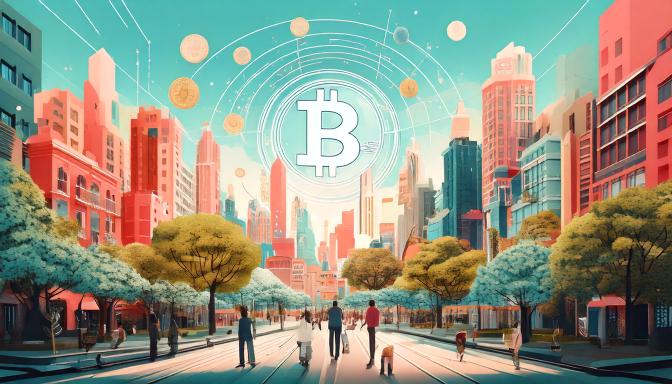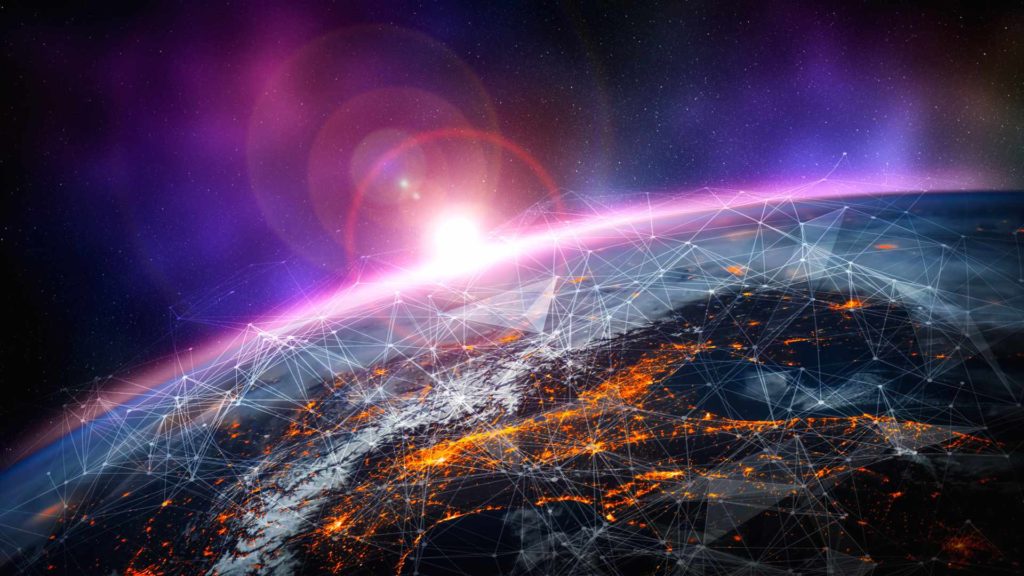How crypto could change the world

Since 2009, with the invention of Bitcoin and the blockchain (the network on which Bitcoin exists), there are been huge developments that have largely gone unnoticed by the mainstream world. Some media commentators still, out of sheer ignorance, call Bitcoin a “scam” and a “Ponzi scheme.” These attempts to delegitimise cryptocurrency are despite the fact that institutions are neck-deep in the blockchain, and that there are over $100 billion in crypto transactions DAILY. (https://coinmarketcap.com)
The truth is, cryptocurrency, the blockchain, DeFi, and “smart contracts” (contracts coded on the blockchain), are growing faster than you can imagine, with thousands of projects currently on the go.
To cut to the chase, I believe cryptocurrency, the blockchain and decentralised finance (DeFi) are set to change the world as we know it. How?
Banking the unbanked
Over 30% of the world’s population has no access to banking or financial services. In continents like Africa, this figure is 66%. China, India, Indonesia and four other countries’ populations constitute 50% of the world’s unbanked. Over 55% of the world’s women are unbanked. (https://bit.ly/world-bank-unbanked)
The most unbanked populations are the poorest. What if these people had access to micro-finance, peer-to-peer transactions, online business opportunities, and self-banking? What if they could save and invest tiny amounts, and access the power of compounding wealth?
DeFi, accessed through mobile phones or simple laptops, makes this possible. This could change the landscape of mass poverty forever, giving humans the ability to transact globally, invest and generate wealth, and, in the near future, participate in governance of their countries and their projects of interest.
Disintermediating the middle man
Our financial transactions are expensive. Yet we get meagre returns from the institutions that claim to serve us. Credit card companies charge 25% annually for the privilege of borrowing from them, and bank savings accounts offer 0.4% APR for the privilege of keeping our money with them. Where has the 24.6% difference gone?
Migrant workers pay 5-10% or more to remit funds to their families back home; the smaller the amounts, the higher the fees, and that really hurts, and is bordering on exploitation. In addition international bank transfers may take days or even weeks.
Everything in the legacy financial world needs a central broker, banker, insurer, agent, or other institution to oversee transactions, and of course they make a living from it (dare I say they cream it?). As the inventor of Bitcoin, Satoshi Nakamoto, said in their white paper:
“The cost of mediation increases transaction costs, limiting the minimum practical transaction size and cutting off the possibility for small casual transactions…” (https://bitcoin.org/bitcoin.pdf)
The white paper further states the intent of Bitcoin as: “A purely peer-to-peer version of electronic cash [which] would allow online payments to be sent directly from one party to another without going through a financial institution.” (https://bitcoin.org/bitcoin.pdf)
Now, cryptocurrencies like Ripple (XRP) and Tron (TRX) enable worldwide transfers of virtually any value, within seconds, at virtually no cost. The implications are enormous.
Immutable contracts
Since the deployment of the Ethereum blockchain, coded contracts, called “smart contracts,” can be registered on the blockchain. The nature of the blockchain ensures that such contracts are incorruptible, indelible, and unchangeable—forever.
Such contracts can be used in any application that is available in legacy centralised finance, such as merchant contracts, property deals, and wills. Not only that, one can register copyright and other intellectual property rights as a smart contract, and even tokenise a copyrighted work as a Non-Fungible Token (NFT), a recent development that has the creative world very interested.
Any program or code that can perform a financial function, such as lending and borrowing, currency exchange, insurance, or even paying for work by the minute, can be an immutable and incorruptible smart contract. The immutability means that one can trust it completely, just as one can trust a drinks vending machine to deliver our snack or drink every time we slot in our coins.
Since 2020, the number of DeFi smart contract projects has skyrocketed, and there is a massive amount of experimentation and development by some of the world’s most brilliant minds. Some projects have failed for many reasons, and some have been phenomenally successful, earning millions or even billions of dollars for the developers, the investors, and the users.
Redefining economics and wealth
When I started studying economics, back in 1970s, the first line of my textbook by Paul Samuelson stated:
“Economics is the study of how men and society choose with or without the use of money, to employ the scarce productive resources which have alternative uses, to produce various commodities over time and distribute them for consumption now and in future among various people and groups of society.” (My italics)
“Scarce productive resources” has been the driving assumption over the course of humankind, provoking greed, hoarding, theft, corruption, and war over that long time. It has been the driving assumption of economics and finance until the present day. Our dog-eat-dog world has come out of the belief in scarcity, and the perceived need to fight for a slice of the limited and scarce wealth available.
Some people have opted out of this fight, and have resigned themselves to voluntary poverty, and even to despising those who do have wealth. Some have dismissed money, wealth and abundance as “materialistic” and unspiritual. However, this also comes from a perhaps-unconscious belief in scarcity, and therefore is fallacious. We now need to uncover the truth about nature’s abundance and how we can tap into it.
I believe cryptocurrency, the blockchain and DeFi, will redefine our beliefs around wealth, because it will disengage our subconscious connection of wealth with scarce physical resources. Once we realise that wealth can come from creativity, from purposeful and productive activity, from participating in now-available global pools of liquidity, and that it is available to ANYONE, regardless of gender, race, political persuasion, or social status, I believe the flood gates will open—in fact they already have.
I believe DeFi will be bigger than the Internet. That really fires me up.






Responses